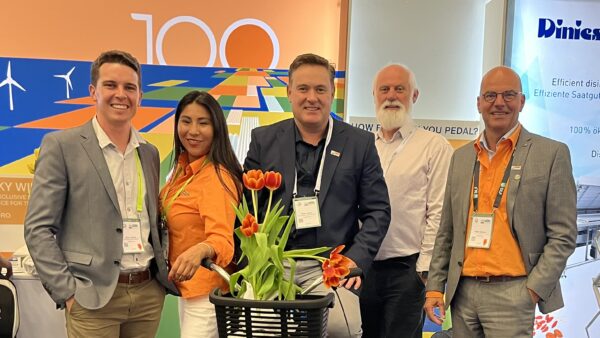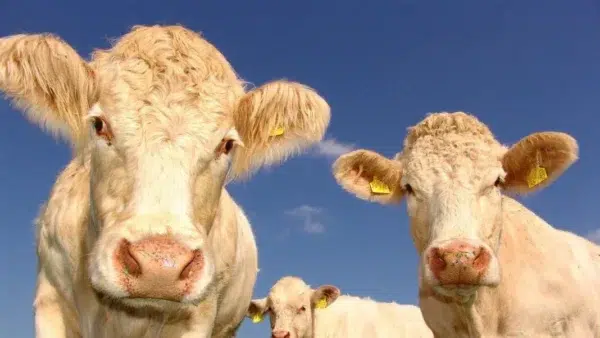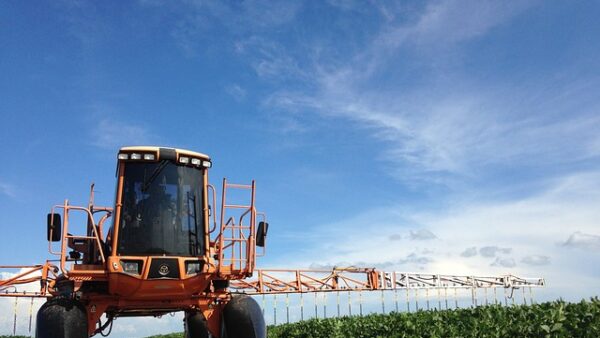The following statement was posted to the Euroseeds website:
Following the European Parliament’s plenary vote on a new Regulation for Plant Reproductive Material (PRM), Euroseeds reaffirms its strong concerns in relation to parts of the current text and renews its commitment to constructive engagement and dialogue with the members of the European Parliament as well as Council and Commission in the further process.
Euroseeds recently again conveyed these fundamental concerns through a joint letter together with a coalition of stakeholders including Copa-Cogeca, Europatat, Coceral, the European Beet Growers (CIBE), and CEPM Maiz’Europe, representing the overwhelming majority of PRM suppliers and users. These concerns reflect the collective interest in ensuring a balanced regulatory framework that supports innovation, competitiveness and sustainability in European agriculture.
“We remain highly critical of certain provisions in the current proposed text. Given the importance of seed as starting point for all agriculture and food production, we are convinced that all farmers must be able to rely on proper quality assurance and control for any material they choose. The many derogations and exemptions weaken this key element and precondition for a fair common market for both breeders and seed users.” remarked Euroseeds Secretary General, Garlich von Essen.
At the same time, a number of technical improvements of the Commission proposal through the discussions in Parliament are welcomed and need to be maintained, e.g. as regards specific provisions for forage and grass species. “This is a highly technical and very complex file that brings together a large number of older Directives into a coherent single text. The late arrival of the proposal and the rush in the EP in view of the end of the mandate certainly has not helped to arrive at a coherent result in the end”, von Essen added.
“Together with our partners, we will continue to contribute constructively to the further legislative process and work towards a regulatory framework that supports the needs of European agriculture and society.” Specifically, the technical expertise in Member States and in the European Commission will be important to arrive at further precision and clarification during the trilogue discussions expected to start towards the end of the year.
The following statement was posted by Copa and Cogeca — the united voice of farmers and agri-cooperatives in the EU — after the release of the PRM report.
Today, the Agriculture Committee report on plant reproductive material (PRM) was adopted during the plenary session’s meeting with 431 votes in favour, 104 against and 82 abstentions.
Improved plant varieties stand as essential levers in facilitating European agriculture’s transition towards a more resilient and sustainable future. However, despite the adoption of the COM AGRI report, concerns linger regarding the balance of the report on derogations, which may inadvertently create incentives for an uncontrolled parallel market. Additionally, the Parliament did not fully support the European Commission’s initial proposal to modernise the rules for placing PRM on the European market.
The modernisation of the PRM legislation is paramount to ensuring that New Genomic Technique (NGT) plant varieties, boasting improved characteristics contributing to sustainable production, can enter the market seamlessly. Copa and Cogeca view the European Commission’s proposals for a regulation on NGT plants, coupled with revisions to PRM marketing directives from 5 July 2023, as a positive step forward. These proposals, long-awaited after more than a decade of postponements, offer a promising starting point for delivering viable solutions.
Statement from KWS
KWS acknowledges the outcome of the vote of the European Parliament (EP) on the Plant Reproductive Material (PRM) proposal. From the company’s perspective the text approved by the Members of the European Parliament puts at risk the well proven pillars of the PRM legislation, that ensured the delivery of high-quality input for all farmers, growers and all users, thus opening for certain material to be exempted by the scope of the legislation and in the future.
The plant breeding and seed sector plays a crucial role in delivering high quality varieties to farmers to face an increasing number of challenges linked to climate changes and reduced tools at their disposal. It is fundamental to guarantee the sector the conditions to continue operate on the basis of a level playing field. Practices that undermine these conditions jeopardize the overall goals of the PRM proposal of food security, protection of biodiversity and restoration of forest ecosystems.
By excluding from the scope of the Regulation certain type of material and activities, the European Parliament created the conditions for a market lacking minimum requirements and official controls. While derogations ensured proper balance between the development of the sector and the safeguard and maintenance of conservation PRM, easing the conditions to operate for conservation entities, the exemption from the Regulation would not only facilitate breaching the common rules and increasing frauds, but would remove any transparency or official oversight for the stated aim of improving diversification and diversity of the PRM placed on the market or exchanged. Exempting certain material from minimum quality and seed health requirements, without any traceability or official controls will impact users and undermine the confidence in the sector and the good reputation of EU produced PRM for global markets.
“The text from parliament opens an informal channel for marketing of PRM with no scrutiny whatsoever regarding its identity, quality, health or marketing claims regarding its suitability for specific users. This risks damage to the drive for EU farmers and growers’ towards more sustainable production, the competitiveness of European agriculture and threatens the international recognition of the EU as a region for reliable sourcing of high quality PRM serving global markets. The outcome of the vote does not reflect the contribution of our sector to the agri-food chain and end consumers nor does it reflect the industry’s objectives in terms of sustainability and economic viability. We look at the Council now to adopt a position that would contrast those threatening provisions to be taken to the interinstitutional negotiations”, states Nigel Moore, Head of Food Ingredients and Euroseeds Board Member for KWS.













